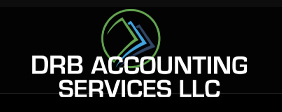All Businesses Must Comply with the FinCEN Transparency Act from 2024 Onward by filing a Beneficial Ownership Information Form (BOI) or Risk $500 Daily Fine for Non-Filing
Where to file BENEFICIAL OWNERSHIP INFORMATION (BOI)

“For too long, it has been far too easy for criminals, Russian oligarchs, and other bad actors to fund their illicit activity by hiding and moving money through anonymous shell companies and other corporate structures right here in the United States. This final rule is a significant step forward in our efforts to support national security, intelligence, and law enforcement agencies in their work to curb illicit activities. The final rule will also play an important role in protecting American taxpayers and businesses who play by the rules but are repeatedly hurt by criminals that use companies for illegal reasons.” – Acting FinCEN Director Himamauli Das
As 2024 dawns, businesses across the United States will face a new legislative landscape with the arrival of the Financial Crimes Enforcement Network (FinCEN) Corporate Transparency Act (CTA). This landmark legislation, effective January 1, 2024, aims to shine a light on corporate ownership, making it harder for bad actors to operate in the shadows.
What is the CTA?
The CTA focuses on combating crimes like money laundering and terrorist financing by boosting transparency surrounding who truly controls businesses. It mandates certain entities formed or registered in the US to report their beneficial owners – individuals with significant control, ownership, or economic benefit over the entity.
Which businesses are covered? The CTA applies to a wide range of entities, including:
- Corporations
- Limited Liability Companies (LLCs)
- Limited Liability Partnerships (LLPs)
- Certain trusts
However, exemptions exist for entities like publicly traded companies and financial institutions already subject to stricter regulations.
What actions are required? Businesses subject to the CTA must:
- Gather information: This includes details about your beneficial owners, such as name, date of birth, address, and identification numbers.
- File a report: You must submit this report electronically to the Financial Crimes Enforcement Network (FinCEN).
- Update information: Any changes to beneficial ownership information must be reported within 30 days.
Important Deadlines:
- January 1, 2024: Reporting requirements begin for entities formed or registered after this date.
- January 1, 2025: Existing entities formed or registered before 2024 have until this date to file their initial reports.
Penalties for non-compliance: Ignoring the CTA can lead to significant consequences, including:
Civil penalties of up to $500 per day capped at $10,000 and up to two years in jail for failure to file or filing inaccurate information.
- Criminal fines of up to $250,000 and imprisonment for up to two years for intentionally providing false information, failing to comply with reporting requirements, or hindering official inquiries.
Is my accountant or lawyer considered a company applicant?
An accountant or lawyer may be a company applicant if they directly filed the document that created or registered the reporting company.
FinCEN anticipates a professional fee cost of $85.14 for the preparation and submission of an initial BOI report of a simple structure.
Complex ownership structures are anticipated to cost up to $2,600 for professional fees. A complex ownership structure will increase administrative work to ensure the company records are current with the accounting firm and in the Financial Crimes Enforcement Network (FinCEN) database. Particular attention will need to be paid to when changes occur, or inaccuracies are uncovered. This will require an increase in the due diligence and risk assessment activities executed by accounting firms on behalf of their clients. With high penalties and potential imprisonment, this is an area that should be closely monitored.
Resources and FAQ's
- FinCEN Corporate Transparency Act website: https://www.fincen.gov/sites/default/files/shared/Corporate_Transparency_Act.pdf
- FinCEN BOI SS User Guide: https://www.fincen.gov/resources/statutes-regulations/guidance
- U.S. Department of the Treasury Corporate Transparency Act website: https://newstral.com/en/article/en/1244479396/u-s-treasury-proposes-guidance-on-corporate-transparency-act-beneficial-ownership-information-reporting
- FAQ: https://www.fincen.gov/boi-faqs#M_3
